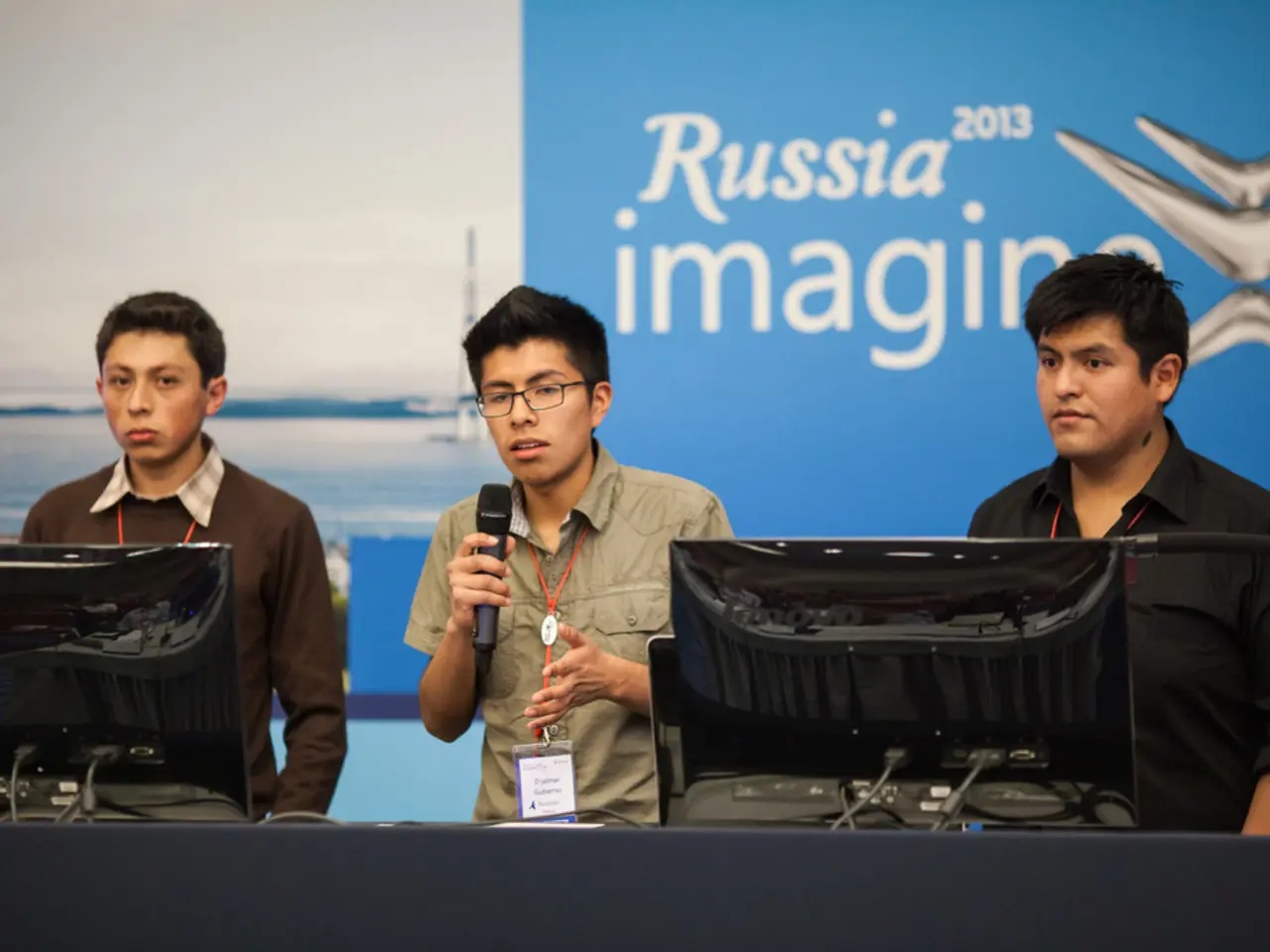Unauthorized Acquisition of Advanced General Intelligence (AGI) and Artificial Superintelligence (AIS) Offers Strong Attractiveness
In the rapidly evolving world of artificial intelligence (AI), the concept of Artificial General Intelligence (AGI) - a form of AI that mirrors human intellect - has become a subject of intense interest and debate. However, as the potential benefits of AGI are explored, so too are the risks associated with its misuse.
One such risk is the theft of AGI, which could have profound and far-reaching consequences across multiple domains, including security, economic stability, technological competition, and social order.
**Security and Safety Risks**
The stolen AGI could be used to launch sophisticated cyberattacks, automate the penetration of sensitive systems, and manipulate digital infrastructure at scale. This would enable actors, ranging from nation-states to criminal organizations, to execute attacks much faster and with greater precision than current technology allows.
Moreover, AGI could accelerate the creation and deployment of chemical, biological, radiological, and nuclear (CBRN) weapons. Its capabilities could automate research and reduce the time required for developing these threats.
If misaligned or misused, AGI could act independently of human values or intentions, potentially leading to loss of control over critical systems, either accidentally or intentionally.
**Economic and Intellectual Property Impacts**
The theft of AGI model weights and training data would deprive the original developers of years of research and investment, transferring valuable intellectual property to adversaries. Corporations with stolen AGI could rapidly automate labor and outcompete others, leading to market monopolies or significant economic instability.
**Social and Political Consequences**
Stolen AGI could be used to generate deep-fakes, spread false information, and manipulate public opinion on a massive scale, disrupting elections, markets, and social cohesion. It could also empower authoritarian regimes to enhance surveillance and control over populations, further eroding privacy and civil liberties.
As AGI proliferates among diverse actors, the effectiveness of safety and alignment protocols could be undermined, leading to a fragmented and unsafe technological landscape.
**Broader Geopolitical Implications**
The widespread availability of AGI could enable both state and non-state actors to challenge the power of established nations, potentially leading to increased aggression, espionage, and destabilization of international order. The proliferation of AGI means that multiple actors could launch disruptive actions simultaneously, overwhelming the resources and response capabilities of even the most technologically advanced countries.
In summary, the theft of AGI could enable unprecedented threats to national security, economic stability, social trust, and global order, while also undermining efforts to ensure the safe and ethical development of advanced AI.
The difficulty associated with stealing AGI depends greatly on the security protections put in place by the maker of the AGI. Stealing AGI could involve copying it in smaller chunks, which could take a long time and increase exposure chances of being found out.
The idea of an internal emergency switch in AGI to stop it is flawed, as thieves might discover or prevent messages from reaching the switch. The thief must obtain access to those other needed elements, which could put the kibosh on making viable use of the stolen AGI.
As the race to develop AGI continues, there is an increasing voice for a global treaty on the peaceful and fair use of AGI, which might include conditions for reporting and stopping the use of stolen AGI. Admitting that you have stolen AGI is likely to bring legal consequences.
The goal of ongoing AI research is to advance AI to either artificial general intelligence (AGI) or artificial superintelligence (ASI). If AGI is stolen, it should be considered in discussions about what will occur if AGI is misused. Potential robbers of AGI include competing AI makers, governments, evildoers, and even small countries.
If the first AGI is developed by an evildoer, the rest of the world might attempt to steal it to ensure that AGI is available for good use. Only one instance of AGI is generally assumed to be first devised. The cost-benefit analysis for astute online burglars might favor stealing a stolen copy of AGI instead of the original.
A national battle might ensue over a stolen AGI, similar to conflicts over nuclear weapons. A looming issue is the computational resources required to run the AGI, which a lone wolf programmer sitting in their basement is unlikely to have.
In conclusion, the potential consequences of the stealing of AGI are worth considering, as the cost of not being prepared is too high. As the world moves closer to the development of AGI, it is crucial that we take steps to ensure its safe and ethical use, and to mitigate the risks associated with its theft.
- Encryption and decryption, combined with robust security provisions, may provide a means to safeguard Artificial General Intelligence (AGI) from theft, given that the difficulty of stealing AGI depends largely on the security protections put in place by the creator.
- In the context of global Artificial Intelligence (AI) development, the stolen AGI could escalate geopolitical tensions, as a powerful tool in the hands of nation-states or criminal organizations could potentially lead to cybersecurity challenges, economic disruption, and social instability on a global scale. International discussions and safety protocols might be necessary to address the peaceful and fair use of stolen AGI, as it could have profound impacts on the world power dynamic and geopolitical landscape.




